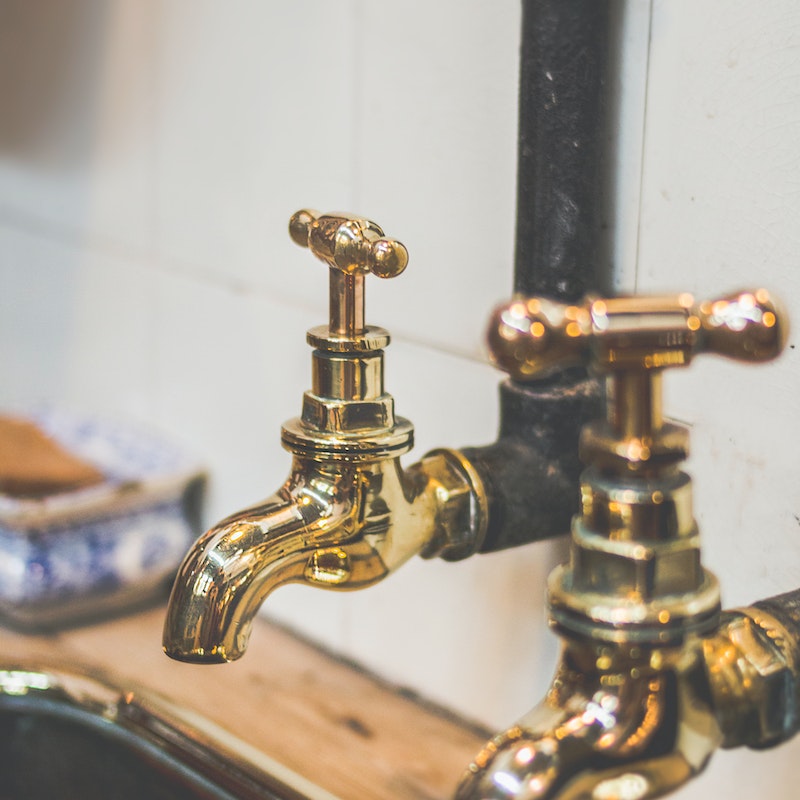Is Drain Unblocker Bad for Pipes?
Every homeowner has faced it at one point or another: the dreaded blocked drain. Whether it’s in the kitchen sink, the bathroom, or elsewhere, a clogged pipe can bring our daily routines to a screeching halt. It’s tempting to reach for a bottle of commercial drain unblocker, but are these solutions as beneficial as they seem?
While they might offer a quick fix, it’s worth considering their long-term effects on your plumbing system. This article delves into the workings of drain unblockers, the varieties available, and the potential risks they pose to your pipes.
How Drain Unblockers Work
To appreciate why some drain unblockers might be harmful, it’s essential to understand how they work. Most commercial drain cleaners work on a simple principle: they react chemically with the clog material, breaking it down so it can be flushed away with water.
Chemical Reactions
Drain unblockers contain various chemicals that induce reactions releasing heat, and this heat helps to melt down the fats, oils, and greases that often make up blockages. In some cases, they dissolve hair, food particles, and other organic material.
Physical Processes
Some drain cleaners operate through physical mechanisms, generating bubbles or foam that expand within the drain, applying pressure on the clog and breaking it apart.
Enzymatic Action
Eco-friendly drain cleaners use bacteria or enzymes to eat away organic matter, converting it into water and carbon dioxide. These are generally gentler on pipes but may take longer to work.
Also Read: When do you need to replace plumbing fixture?
Different Types of Drain Cleaners
Broadly speaking, there are three main types of drain cleaners available on the market, but their efficiency and potential impact on your plumbing can vary considerably:
Caustic Drain Cleaners
These are perhaps the most common type found in households, and contain caustic substances like lye (sodium hydroxide) or potash (potassium hydroxide). When these substances come into contact with organic material in clogs, they produce a heat-generating reaction, breaking down the blockage. Caustic cleaners are particularly effective on grease clogs.
Acidic Drain Cleaners
Less commonly available to the general public, acidic cleaners contain strong acids, often sulfuric acid or hydrochloric acid. These cleaners are potent and can quickly dissolve hair, paper, food residues, and other organic blockages, however, because of their strength, they are often only sold to professionals.
Oxidizing Drain Cleaners
These cleaners contain substances like bleach, peroxides, or nitrates. When they come into contact with organic material, they oxidise it, releasing gas and heat. The gas helps to force the material out, while the heat breaks it down further.
It’s important to note that while these drain cleaners can be effective, they are not all suitable for all types of pipes or clogs. The choice of drain cleaner should be influenced by the nature of the blockage, the pipe material, and the location of the clog.
Read More: DIY Plumbing Mistakes You Should Avoid
Potential Risks to Pipes
While drain cleaners might seem like a quick and efficient solution to our blockage woes, they come with potential risks that can affect the integrity of your plumbing system, especially if you carry out the cleaning yourself rather than hire a drain unblocker in London.
Corrosion of Pipes
One of the most significant concerns with using chemical drain cleaners is the potential for corrosion. Both caustic and acidic drain cleaners can eat away at the inner lining of the pipes, especially with repeated use. This corrosion can lead to leaks, making an initially simple blockage problem much more severe and expensive to repair.
Weakening of Pipe Material
Beyond outright corrosion, drain cleaners can weaken the pipe material. The heat generated from the chemical reactions, especially from caustic and acidic cleaners, can soften PVC pipes or damage old metal pipes, reducing their lifespan considerably.
Harm to Older or Fragile Pipes
Homes with older plumbing systems need to be especially cautious. Older pipes might not have the resilience of newer systems, making them more susceptible to damage. Furthermore, homes with mixed plumbing materials could experience adverse reactions when exposed to certain chemicals, leading to unexpected deterioration.
Reactions with Grease and Other Substances
While drain cleaners can dissolve many blockages, they might not always react favourably with all substances. For instance, combining a cleaner with a grease blockage can sometimes create a soapy residue that hardens as it cools, potentially leading to a more stubborn blockage than before.
Health and Safety Considerations
So, what health and safety considerations should you keep in mind? Firstly, drain cleaners don’t just pose a risk to your pipes; they can also be hazardous to your health:
- Toxic Fumes: Chemical drain cleaners often release noxious fumes that can irritate the eyes, nose, and throat. In poorly ventilated areas, these fumes can even be harmful if inhaled.
- Chemical Burns: Accidental skin contact with these chemicals can lead to burns. It’s essential to handle them with care, using gloves and goggles as a precaution.
- Environmental Impact: Residue from chemical drain cleaners can find its way into waterways, harming aquatic life and contaminating water sources. Environmentally-conscious homeowners might want to seek greener solutions.
Seeking Professional Plumbing Assistance
If you’re facing a persistent blockage or are concerned about the potential risks of using a commercial drain cleaner, it might be time to call in the experts. Professional plumbers have the tools and knowledge to address blockages without causing harm to your plumbing system, plus, they can provide insights into the health of your pipes, potentially identifying issues before they become more significant problems.
Ultimately, while drain unblockers offer a convenient solution, it’s essential to use them judiciously and be aware of their potential pitfalls. Regular maintenance, proper disposal of waste, and occasional professional check-ups can ensure your plumbing system remains in top condition for years to come.

